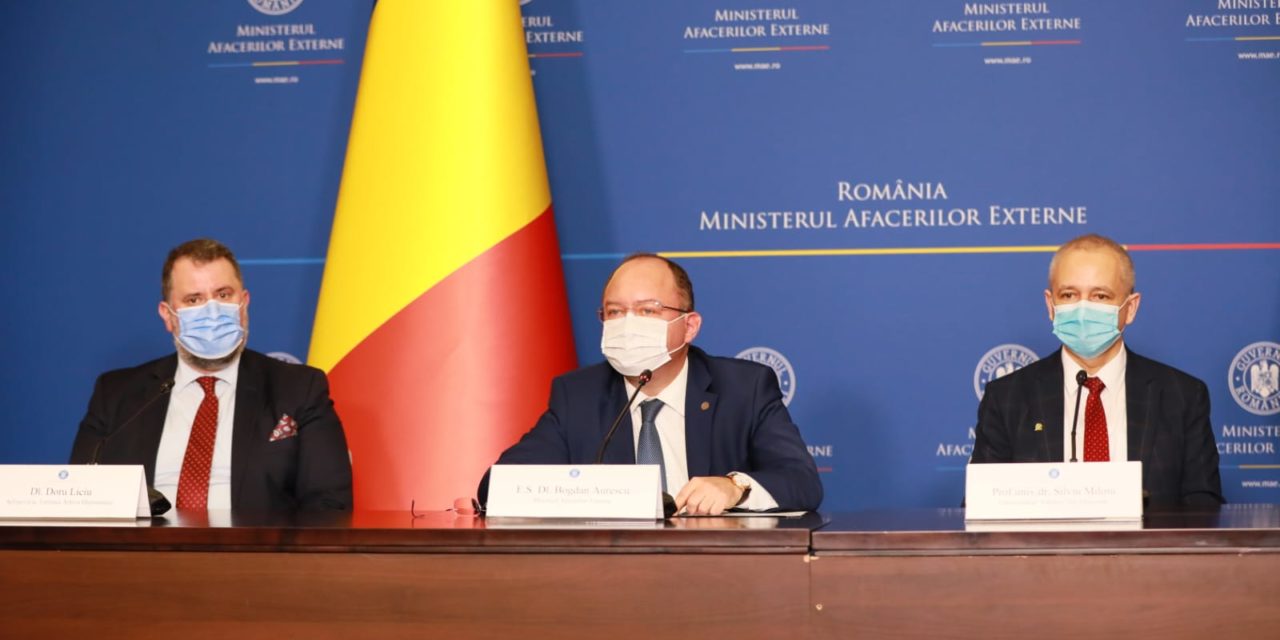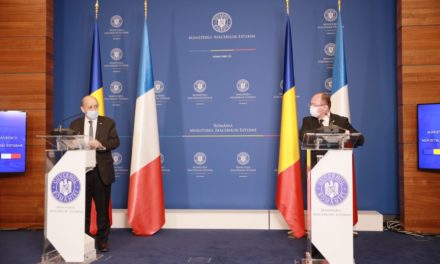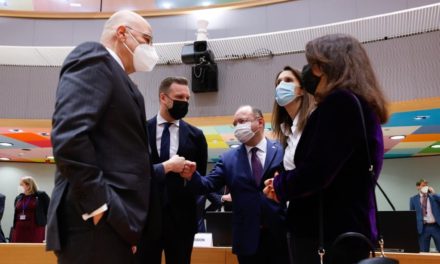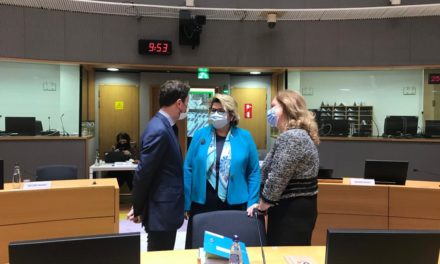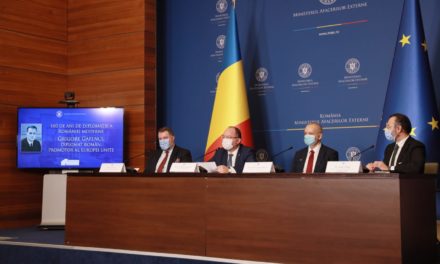Captură video: AICI.
Realizator: Let’s head now to Bucharest. Joining me now, Romania’s Foreign Minister Bogdan Aurescu. Foreign Minister, thank you so much for joining us here at Sky News this afternoon. We appreciate your time.
Bogdan Aurescu: Thank you for having me.
Realizator: You have heard the Ukrainian representative to the UN Human Rights Council talking about what is happening in your country on day 7 of this Russian invasion. What are your thoughts today?
Bogdan Aurescu: What we see is that the Russian aggression continues. Unfortunately, the security situation is getting worse and worse and despite the attempt to have a round of consultations between the Russian and the Ukrainian diplomats, there is no resolution of the conflict foreseeable. And that’s very unfortunate.The fact that that round of consultations was unfolding during the aggression – the aggression continued during the talks – that conveyed a very clear message that Russia, in fact, does not want to find a peaceful, diplomatic resolution of this conflict, but wants to continue its aggression against Ukraine. This is producing a lot of harm to the people, to the civilians. There are a lot of casualties among the civilians.
I think President Putin should hear the call of the international community that this aggression – which is illegal, which is in flagrant violation of International Law – should stop immediately.
That’s why Romania is joining also other countries, including UK, including France, including Denmark, including Poland, and others, in a demarch that we will make today, this evening, to refer the situation in Ukraine to the International Criminal Court, to the Prosecutor of the International Criminal Court and allow him, thus, to investigate crimes against humanity, war crimes, and genocide in Ukraine, during this conflict.
I think this is a demarch that should send a very strong signal that the international community is ready, including with the instruments of International Law, with the instruments of international justice, to make the Russian authorities accountable.
Realizator: Let’s talk about the unfolding refugee crisis involving Ukraine. The United Nations says the number of refugees is reaching 1 million in the first seven days into this invasion, many of them crossing borders into neighbouring countries, including Romania. What kind of numbers have you been seeing entering Romania?
Bogdan Aurescu: Indeed, Romania, as a direct neighbour of Ukraine, has the longest border of an EU and NATO member state with this country: 649 kilometers, so more than 400 miles, including also a very close proximity to Crimea, which is some 300 kilometers, so 200 miles, across the Western basin of the Black Sea.
So, indeed, a lot of Ukrainian citizens are crossing into Romania. The numbers, if we count them starting with the 10th of February, when the situation became more and more tense, and up to now: around 140.000 Ukrainian citizens have crossed our border and more than 45.000 – 46.000, actually – have stayed in Romania by now. The numbers are growing. There are not only Ukrainian citizens crossing the Romanian-Ukrainian border, but also citizens of other countries, who are trying to get out of that war and to go safe back home.
The Romanian authorities are providing all necessary help. We are very much open to receiving these refugees and we are trying to provide all help possible in order for them to be safe and to feel that their lives are in good hands. As far as the foreign citizens, others than Ukrainian citizens, are concerned, we are also helping them to go back to their countries of origin.
We have also helped a lot of diplomatic missions from Ukraine, the personnel of these missions also crossed the Ukrainian-Romanian border. We have helped them to go back to their homes.
So Romania is an open country for refugees, we have full availability to provide support for these persons.
For that, we have also decided yesterday to create, on the territory of Romania, a hub for collecting and transferring donations from the international community, as far as the humanitarian assistance is concerned, for Ukraine.
Realizator: I’m glad you mentioned citizens of other countries, we’ve had a guest from the program, not so long ago, an African student called Alexander and he said he had experienced racism trying to cross the border into Poland. He’s just one of a number of stories that we’ve been hearing, particularly on social media, of African, Asian and Mediterranean students saying that they were facing a form of segregation at borders, while Ukrainians being allowed to cross borders first. Others were forced to wait or were sent to other points. What’s the situation at the border with Romania? Are you helping everyone get across?
Bogdan Aurescu: Yes, we are helping everyone. There is no difference whatsoever as far as the citizenship of the person is concerned. So everybody is welcome to Romania. We are able to process almost 2.000 requests per hour, so we are able to receive them on the Romanian soil. Whatever citizenship they have, they can enter without any kind of problems, there is no difference of treatment whatsoever between various foreign citizens. We have not experienced such kind of problems at our borders.
Realizator: What kind of assurances will people have at the border, because obviously this isn’t state-backed action? You know, segregating people according to race at the border, it’s allegedly happening because of security forces, Police officers. What guarantees can you give people who have journeyed for days to get to the border that they won’t be treated differently because of the color of their skin?
Bogdan Aurescu: Again, that kind of problem has not been met at the Romania-Ukrainian border. If there is anything at the Polish-Ukrainian border, I cannot comment on that. I have only seen an information coming from the Ukrainian authorities saying that those are just rumors, but of course I cannot check what happens at the Polish-Ukrainian border.
I can tell you that at the Romanian-Ukrainian border there is no such problem whatsoever. Nobody complained of any kind of discriminatory treatment. To the contrary, I have received a lot of phone calls from various counterparts from India, from Pakistan, from Morocco – I have discussed today with my colleague the Foreign Minister, and from many other countries. They thanked the Romanian authorities for their help as far as the evacuation of their citizens, irrespective of their citizenship or country of origin.
Realizator: Good to hear Bogdan Aurescu, the Romanian Foreign Affairs Minister. Thank you for talking about your country’s efforts in helping those refugees who are fleeing Ukraine.
Sursa: Intervenția ministrului afacerilor externe Bogdan Aurescu la Sky News

